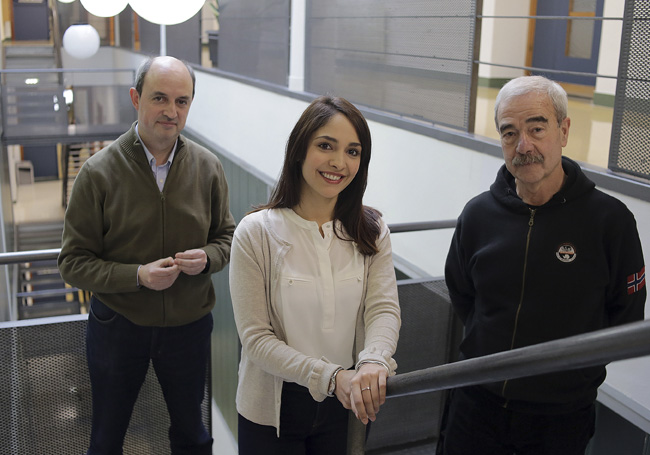A piece of work by the UPV/EHU’s HAEZI research group has, in collaboration with the Biodonostia Institute, studied the influence of the quality of the family context in cognitive development in early childhood, and has concluded that proper interaction between parents and children to stimulate cognitive development is not sufficient on its own but that there has to be a quality family emotional climate.
The family context, a predictor of cognitive development in the early years
Researchers at the UPV/EHU-University of the Basque Country have analysed the importance of the family emotional climate in the cognitive development of children
- Research
First publication date: 08/02/2018

During the early years of child development in the life of a boy or girl, the family constitutes one of the environments that exert the most influence on their cognitive, personal, emotional and socio-emotional development. The family influence remains for several years, but it is in these early years that it plays a crucial role because the family group provides the child with all the early signs of affection, appreciation, acceptance or rejection, success or failure. That is why “it is essential to study the family context in these early stages and to observe how certain aspects of family life influence child development,” explained Florencia Barreto, co-author of the study.
This piece of research by the UPV/EHU’s Faculty of Psychology in collaboration with the Biodonostia Institute assesses the quality of family context and sociodemographic factors at the age of 2, and studies how they influence cognitive development at the age of 4 by identifying which variables exert the greatest influence on it. To do this, they studied a population-based cohort of 295 children and their families in Gipuzkoa who are part of the INMA (Childhood and Environment) Project, which emerged to address the need raised by the European Community to study environmental factors and their impact on child development.
“The family context was assessed by means of a home visit in which information was obtained from the direct observation of interactions with the children and environment quality, and also through questionnaires and an interview with the parents; this allowed information to be gathered on the quality of the physical environment and of cognitive, linguistic and socio-emotional stimulation; in other words, how many stories and puzzles there were at home, the quality of affective expression or whether badly-pronounced words were corrected, among other things,” explained Barreto. “Cognitive development was assessed individually at the age of 4 by means of an instrument that assesses cognitive development as the sum of various sub-scales that measure verbal, perceptive-manipulative, numerical, memory and general cognitive abilities,” added the UPV/EHU researcher.
Variables that most influence early childhood
The results obtained show firstly that those families in which there is a high quality of socio-emotional interaction between parents and children are also more competent when it comes to stimulating cognitive and linguistic development, which is known as scaffolding. “It is a process that has to do with the deliberate intention by parents to stimulate the development of their children by presenting them with the carrying out of an activity or task that is just above their capabilities but without it ending up frustrating. The parents become guides who support the carrying out of the activity and gradually withdraw as knowledge is built and internalised. That way, parents are able to stimulate the connections between neurons and thus activate child cognitive development,” explained Florencia Barreto. “The scaffolding or stimulation process is always mediated by the quality of socio-emotional stimulation, in other words, for cognitive development to be properly promoted, it is not enough just to put the scaffolding process into practice, it has to be accompanied by good quality socio-emotional interaction, such as the promoting of autonomy and self-esteem, a positive affective climate and, at the end of the day, the establishing of secure attachment,” said Barreto.
The research also established that first-borns may benefit from the exclusivity of economic resources and time that their parents spend with them, as long as the family context is a quality one so that development can be to stimulated. What is more, “we have seen that in all the families, exposure to a second language in the home itself complements the wealth of the stimulation,” said Barreto.
According to the researcher, “the results could guide the setting up of upbringing programmes designed to strengthen the promotion of child cognitive development”. Likewise, “the transmission of this information to the general population of families will help them to become aware of the huge margin of influence that they have on the intellectual development of their children,” she added.Bibliographic reference
- Family context and cognitive development in early childhood: A longitudinal study
- Intelligence. Vol. 65. November-December 2017. Pages 11-22
- DOI: 10.1016/j.intell.2017.09.006







